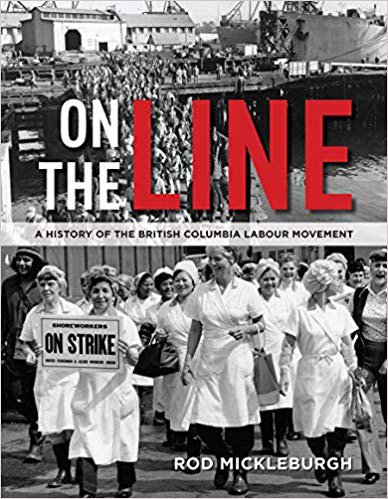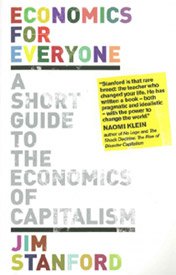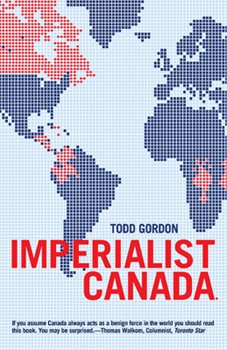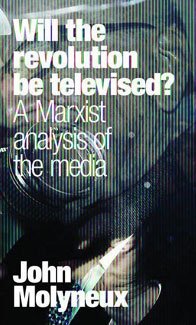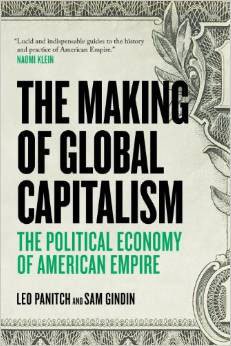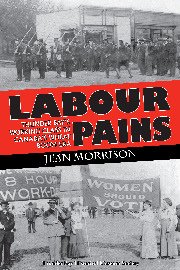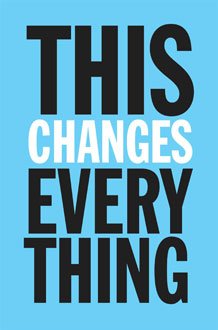Book Reviews
On The Line is an account of BC trade unions by the BC Labour Heritage Centre (an offshoot of the BC Federation of Labour) written by retired Vancouver Sun labour reporter Rod Mickleburgh. In a well illustrated and lively manner he tells the story of workers’ organizations and struggles, from Vancouver Island Coal miners in the 1850s to teachers’ struggles today.
The Rise of Agrarian Democracy is the story of how Alberta farmers built a movement that elected the longest lived experiment in farm populist government in North America—the United Farmers of Alberta (UFA) from 1921 to 1935. B.J. Rennie’s aim is to tell and analyze how this mass mobilisation arose through the development of “a movement culture” in three steps.
In Spring 2001 thousands mobilized to protest the Free Trade Area of the Americas conference in Québec City. Following the "battle in Seattle" in 1999 and protests in Europe, a new anti-capitalist current has arisen. It is a current that includes some inspired by democratic socialism, but mostly includes a new generation inspired by some form of populism, radical liberalism open to refinement as either anarchist or socialist.
The Harper Conservative government is in its second iteration as the national government of Canada. It is quite likely that a federal election will happen in the coming year as Harper looks to move beyond minority status to a majority government. If Lawrence Martin’s recent account of Harper is accurate (his book Harperland), then we are in deep trouble if he succeeds.
We have entered a whole new, crisis-ridden and conflictual period in world history. The combination of George W. Bush’s disastrous occupation of Iraq and the global economic crisis has ripped apart the unipolar world order the United States attempted to construct after the Cold War.
Economics for Everyone – A Short Guide to the Economics of Capitalism, by Jim Stanford, Fernwood Publishing & Canadian Centre for Policy Alternatives.
Todd Gordon’s new book provides a compelling case that Canada is an imperialist country in its own right. His factual presentation of the matter will reinforce what is already a growing perception among Canadians.
Biographer Ian Birchall believes Cliff's is such an important life that he has devoted 560 pages to it. These are followed by big slabs of bibliography, index, and notes. These academic-style appendices sit oddly with his subject, for Cliff was the most informal of political figures.
Molyneux believes there is a reality – a reality of exploitation and working class oppression – but he argues the futility of trying to combat the media on its own terms (a lesson that could have saved Ontario teachers a lot of money).
John Riddell here begins bringing to a close an epic project of over ten years duration – the publication in English of the entire proceedings of the Third International, or Comintern, in Lenin’s time.
It may be premature to declare capitalism in “crisis” while it remains firmly in control of virtually all levers of power in states around the world, but with popular revolts against the neo-liberal agenda springing up everywhere from Chile to Europe to Wall Street to Quebec, we may be seeing the rupturing of the passive, consensual relationship that bourgeois democracies have taken for granted between capitalism and the beleaguered populations who are its victims.
Haitians have suffered mightily for repeatedly defying and defeating the imperial order.
During the global justice movement at the end of the 1990s, it was common sense among activists that globalization had bypassed and undermined the state system. Our enemies were not imperialist states but rather multinational corporations and international institutions like the International Monetary Fund (IMF), World Bank, and the World Trade Organization (WTO).
This is a study of working class formation. In particular, it is the story of the most advanced Thunder Bay (then Fort William and Port Arthur) workers from the 1880s to World War One as measured by such forms of autonomous institutional completion as trade unions and political parties.
Every impatient radical familiar enough with the workings of capitalism and its primal role in human suffering longs at some point for others to take the red pill Morpheus offers Neo in The Matrix, which would allow people to see the world as it truly is.

